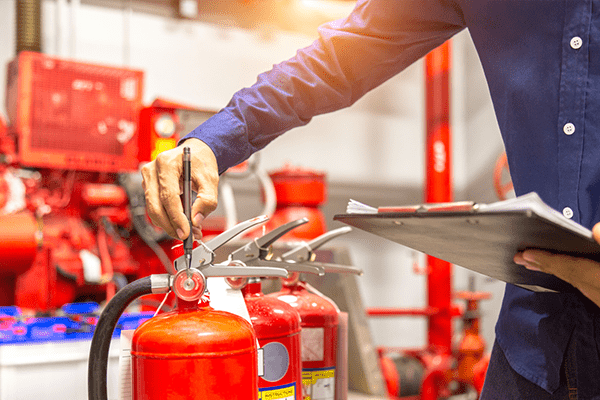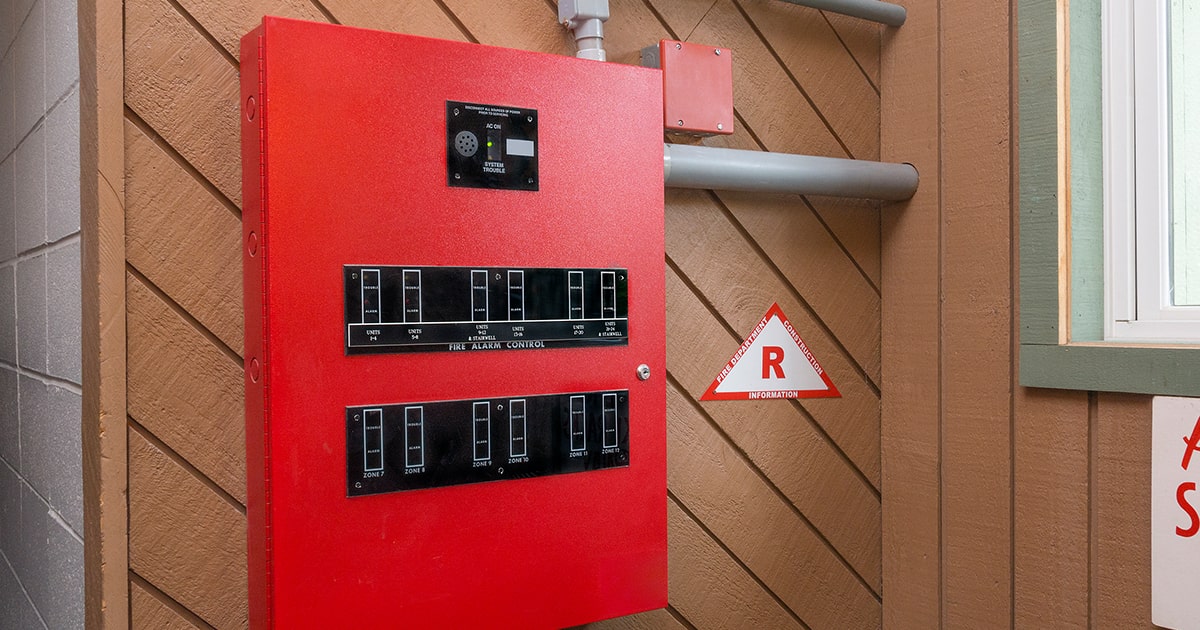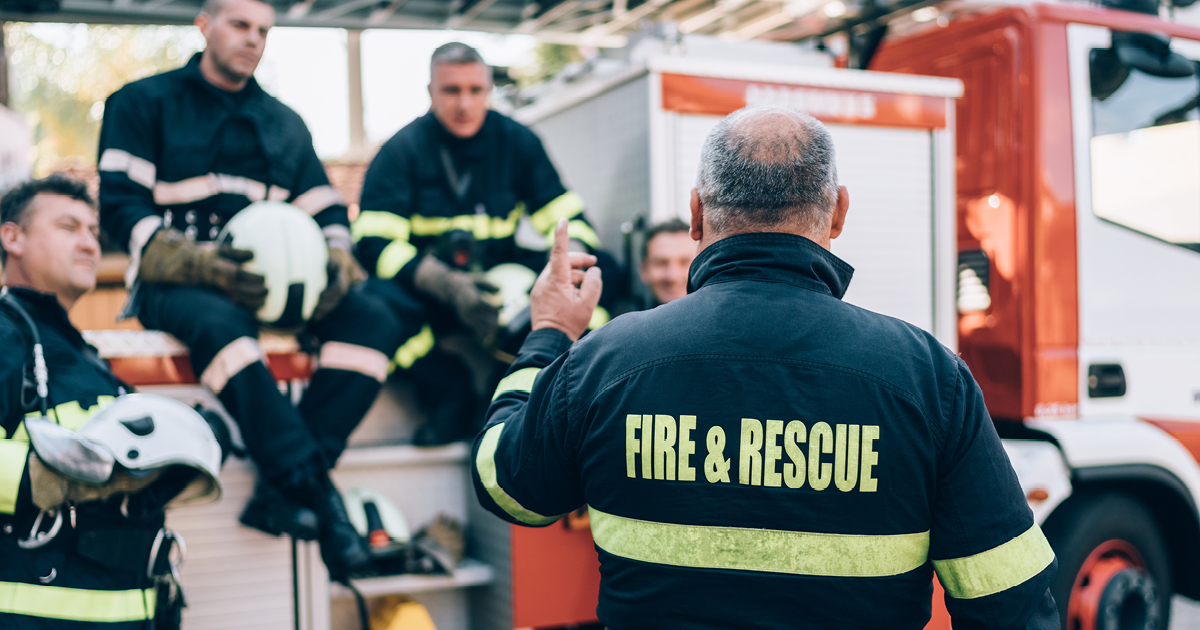Winter Commercial Fire Safety Tips
While fire safety and prevention are crucial year-round, unique fire hazards accompany winter’s freezing temperatures. The National Fire Protection Association (NFPA) reports that many holiday-related factors contribute to an increased fire risk during the winter months, and commercial settings are just as vulnerable. Besides creating and reviewing company-wide fire safety procedures, here are 4 tips to help you protect your business from the dangers of common winter fire hazards.
1. Decorate safely
Holiday decorations bring joy to any company’s employees and customers during the holiday season but can become dangerous hazards if misused. While you may want your storefront or office to stand out with top-of-the-line lights and decor in December, misusing or overloading outlets and extension cords can quickly lead to electrical fires. Many holiday decorations are also made of flammable materials that can turn a small flame into a blaze within seconds, so following proper precautions is crucial in preventing fires.
If you plan to use lights or other plug-in items in your building, ensure everything meets your local electrical and fire safety standards. Replace any strand of lights or electronic decorations if they flicker or stop working. Overloading outlets with misused extension cords is a year-round fire safety violation that can easily cause an electrical fire. Use them properly or avoid using them if possible. Keep decorations like trees, greenery, and other flammable fixtures at least a few feet away from open flames, light fixtures, and other heat sources.
2. Use heat sources properly
Whether it’s a large patio heater for customers or a portable space heater at an employee’s desk, a heat source can pose severe risks if misused to combat cold weather. If a space heater is placed too close to furniture or other flammable materials, the increased heat can increase the chance of a fire. Because of their electrical demand, space heaters may have a greater chance of causing problems when plugged into an extension cord or used in large numbers throughout a building. Additionally, older space heaters and poorly maintained fireplaces can lack protective features or be more prone to malfunctions.
The primary solution for heat source fire hazards is to ensure your HVAC system is in working order to keep your building’s interior warm enough for employees and clients. If you need space heaters, track how many units your office uses. Ensure you use newer models that include protective auto shut-off capabilities that apply when a device is used for an extended period, begins to overheat, or is tipped over. Space heaters should always be unplugged when not in use and never be plugged into extension cords.

3. Inspect fire protection systems
Snow and ice can create a winter wonderland outdoors, but freezing temperatures can wreak havoc on your fire protection systems. Fire sprinkler systems located along exterior walls can freeze without proper heating measures, potentially hindering water flow in the event of a fire. Additionally, cold weather brings lower humidity levels that increase the potential generation of static electricity. If left unaddressed, dry air that produces static shock can damage equipment or contribute to fires without proper preventative measures.
Ensure your sprinkler riser rooms have sufficient heat to prevent your system from freezing. Any system components, from smoke detectors to alarm systems, should be regularly checked for cold-related issues and malfunctions throughout winter. Maintain proper humidity levels in areas of your building susceptible to static shock. Above all else, ensure that sufficient fire extinguishers are placed throughout your facility to protect against fire hazards that can become an active blaze.
4. Keep emergency access points clear
Shoveling snow is no fun, but leaving it to build around your office’s exterior can be quite dangerous if it inhibits escape and rescue efforts. While it isn’t a direct fire hazard, leaving fire hydrants or emergency exits obstructed by snow could mean emergency rescue efforts are less efficient. Besides preventing first responders from fighting a fire, blocked entrances can make it extremely difficult for your building’s inhabitants to escape safely.
Any access points to your facility should remain unblocked, both inside and outside, to ensure that anyone inside can exit safely and quickly. Fire hydrants and other emergency resources for first responders should be cleared of snow, debris, and other matter that inhibits access. Consider marking these assets with flags or other indicators that will help direct emergency responders to them.
Fire safety is crucial, whether the weather outside is frightful or enjoyable. For business owners who want to improve their company’s fire safety capabilities, FSS Technologies is here to help. Our team of experts can assist you with installing and maintaining a fire alarm system customized for your business. We also offer fire safety system monitoring and inspections to ensure your system protects your employees and customers every hour of every day. Contact us today to get started.









